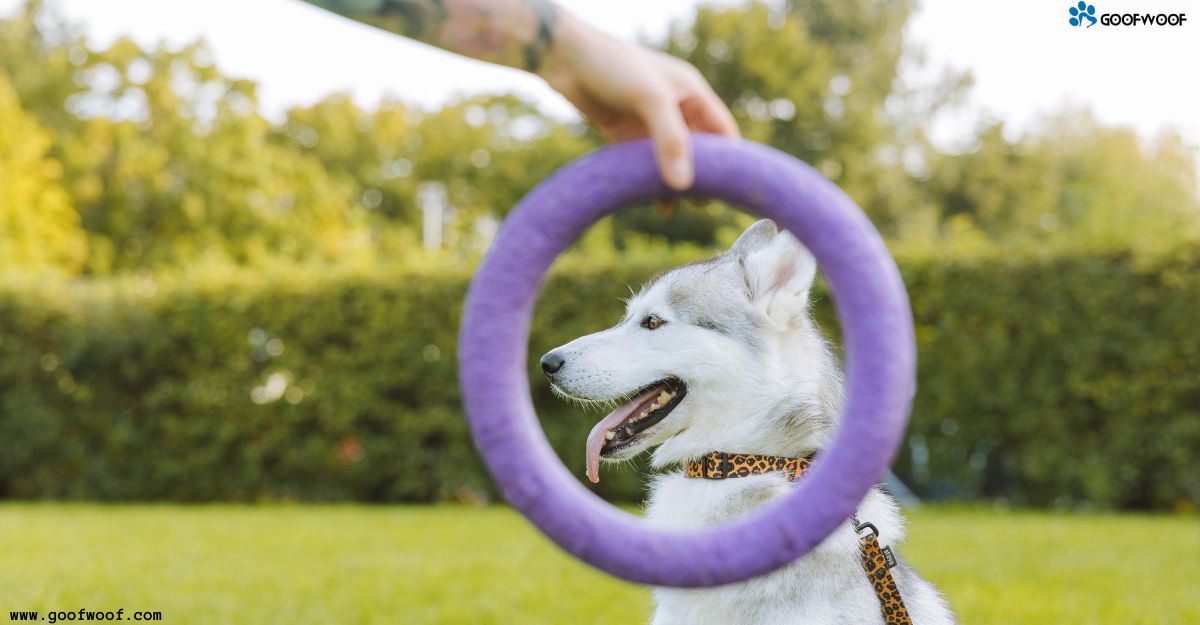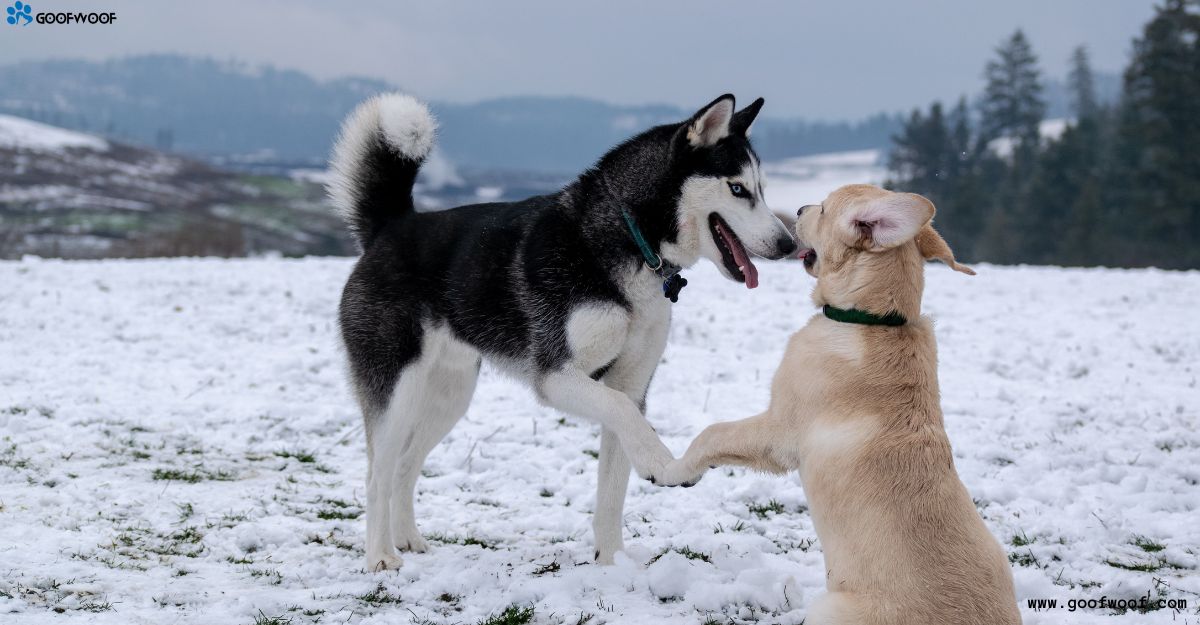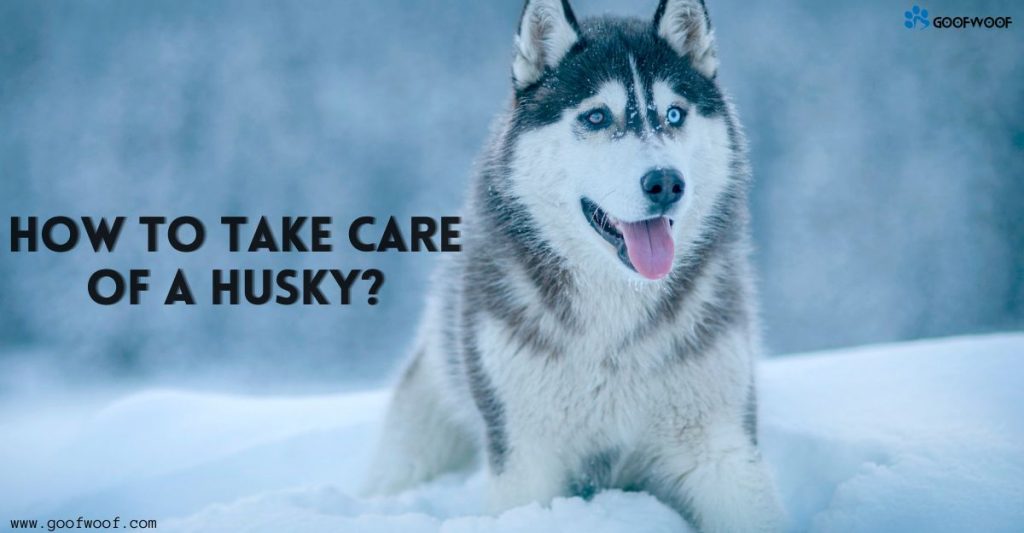Huskies are a high-energy breed that require a lot of daily exercise and attention. They are intelligent and independent, and can be difficult to train if they are not properly socialized. It is important to establish yourself as the pack leader with a Husky, as they can be prone to trying to take over the household if they sense that they are in charge.
Here are some tips for caring for a husky:
Exercise:
Huskies are energetic, athletic dogs that need plenty of exercise to keep them happy and healthy. Here are some ideas for exercising your husky:
1. Go for a daily walk or jog: Huskies love to go for walks and runs, and this is a great way to get some exercise and bond with your dog.
2. Play fetch: Huskies love to fetch, so playing a game of fetch with a ball or frisbee is a great way to get them moving.
3. Go hiking: Huskies are built for endurance, so taking them on a hike is a great way to give them a workout.
4. Swimming: If your husky enjoys the water, taking them swimming can be a great way to get them exercise.
It’s important to remember to always start slowly and build up your dog’s endurance gradually, especially if they are young or haven’t had much exercise before. And be sure to always have plenty of water available for your dog to drink during and after exercise.

Training:
It is important to start training your husky as soon as you bring them home. Here are some tips for training your husky:
- Start training early: The earlier you start training your husky, the easier it will be to teach them good behavior. Puppies are especially receptive to training, so it’s important to start socializing and training them as soon as you bring them home.
- Use positive reinforcement: Huskies respond well to positive reinforcement, so it’s important to reward good behavior with treats, praise, and affection. Avoid using punishment or physical force, as it can lead to fear and aggression.
- Be consistent: It’s important to be consistent with your training techniques and rules. If you allow your husky to do something one day and then scold them for it the next, they will become confused and may not understand what is expected of them.
- Use commands consistently: Choose a few commands and stick to them. For example, use “sit” for sitting and “stay” for staying in one place. Be consistent with the words you use and the hand signals you give, and make sure everyone in the household is using the same commands.
- Set clear boundaries: It’s important to set clear boundaries for your husky and to consistently enforce them. This will help them understand what is and is not acceptable behavior.
- Provide mental and physical stimulation: Huskies are intelligent and energetic dogs that need regular mental and physical stimulation to stay happy and healthy. Make sure to provide plenty of opportunities for them to exercise and play, and offer them toys and puzzles to keep them mentally engaged.
By following these training tips, you can help your husky become a well-behaved and well-adjusted pet.
Socialization:
It is important to expose your husky to a variety of people, places, and experiences when they are young to help them become well-adjusted adults. Keep them well-socialized, especially when they are puppies, to prevent aggressive or fearful behavior.

Diet:
A balanced diet is important for your husky’s overall health and well-being. Here are some tips for feeding your husky:
- Choose a high-quality dog food: Look for a dog food that is made with high-quality protein sources, such as meat or fish, and avoid foods with low-quality fillers or additives. It’s also a good idea to choose a dog food that is formulated for huskies or other large breeds, as they have different nutritional needs than smaller breeds.
- Feed the right amount: How much you feed your husky will depend on their age, size, and activity level. In general, a healthy adult husky should be fed about 1.5 to 2.5 cups of high-quality dry dog food per day, divided into two meals.
- Consider your husky’s individual needs: Some huskies may have specific dietary needs due to medical conditions, allergies, or other factors. It’s important to consult with your veterinarian to determine the best diet for your husky.
- Avoid feeding your husky table scraps: While it may be tempting to share your food with your husky, it’s important to remember that many human foods can be harmful to dogs. Avoid feeding your husky table scraps and stick to a nutritionally balanced dog food.
- Provide access to clean, fresh water: Make sure to provide your husky with clean, fresh water at all times. Water is essential for keeping your husky hydrated and helping them maintain a healthy weight.
Grooming:
Huskies are a breed of dog that are known for their thick, fluffy coat, which requires regular grooming to keep it healthy and well-maintained. Here are some tips for grooming your husky:
- Brush your husky regularly: Huskies have a double coat that needs to be brushed at least once a week to remove tangles and mats. Use a slicker brush or a comb specifically designed for double-coated breeds to remove loose fur.
- Bathe your husky as needed: Huskies generally only need to be bathed every few months, as their coat is self-cleaning. When you do bathe them, use a mild shampoo specifically designed for dogs and make sure to rinse thoroughly to avoid leaving any soap residue on their coat.
- Trim your husky’s nails: Huskies’ nails should be trimmed every few weeks to keep them from getting too long. If you can hear their nails clicking on the floor, they are probably too long. Use a nail trimmer specifically designed for dogs, and be careful not to cut too close to the quick, as it can be painful for your dog.
- Check your husky’s ears: Huskies are prone to ear infections, so it’s important to check their ears regularly and clean them as needed. Use a cotton ball or a soft cloth to gently clean the inside of their ears, being careful not to go too deep. If you notice any redness, discharge, or a strong odor, consult your veterinarian.
- Brush your husky’s teeth: It’s important to brush your husky’s teeth at least once a week to remove plaque and prevent dental problems. Use a toothbrush and toothpaste specifically designed for dogs, and be gentle to avoid damaging their teeth or gums.
Health:
Huskies are generally healthy dogs, but like all breeds, they can be prone to certain health issues. Here are some tips for caring for your husky’s health:
- Keep your husky at a healthy weight: Overweight huskies are at increased risk of health problems such as diabetes, joint problems, and heart disease. Make sure to feed your husky the right amount of food and provide them with regular exercise to help them maintain a healthy weight.
- Keep up with vaccinations: It’s important to keep your husky up to date on their vaccinations to protect them from preventable diseases. Talk to your veterinarian about which vaccines are recommended for your husky.
- Regularly visit the veterinarian: Make sure to take your husky for regular check-ups with the veterinarian to detect and address any potential health problems early on.
Protect them from extreme weather:
Huskies have a thick coat that helps them stay warm in cold weather, but they can still be susceptible to frostbite and hypothermia. In hot weather, make sure your Husky has access to shade and plenty of water to prevent heat stroke.
Conclusion:
By following these tips, you can help ensure that your Husky stays happy and healthy. Overall, it is important to be committed to meeting the needs of a Husky, as they can be demanding pets. However, with proper care and attention, they can make loving and loyal companions.



